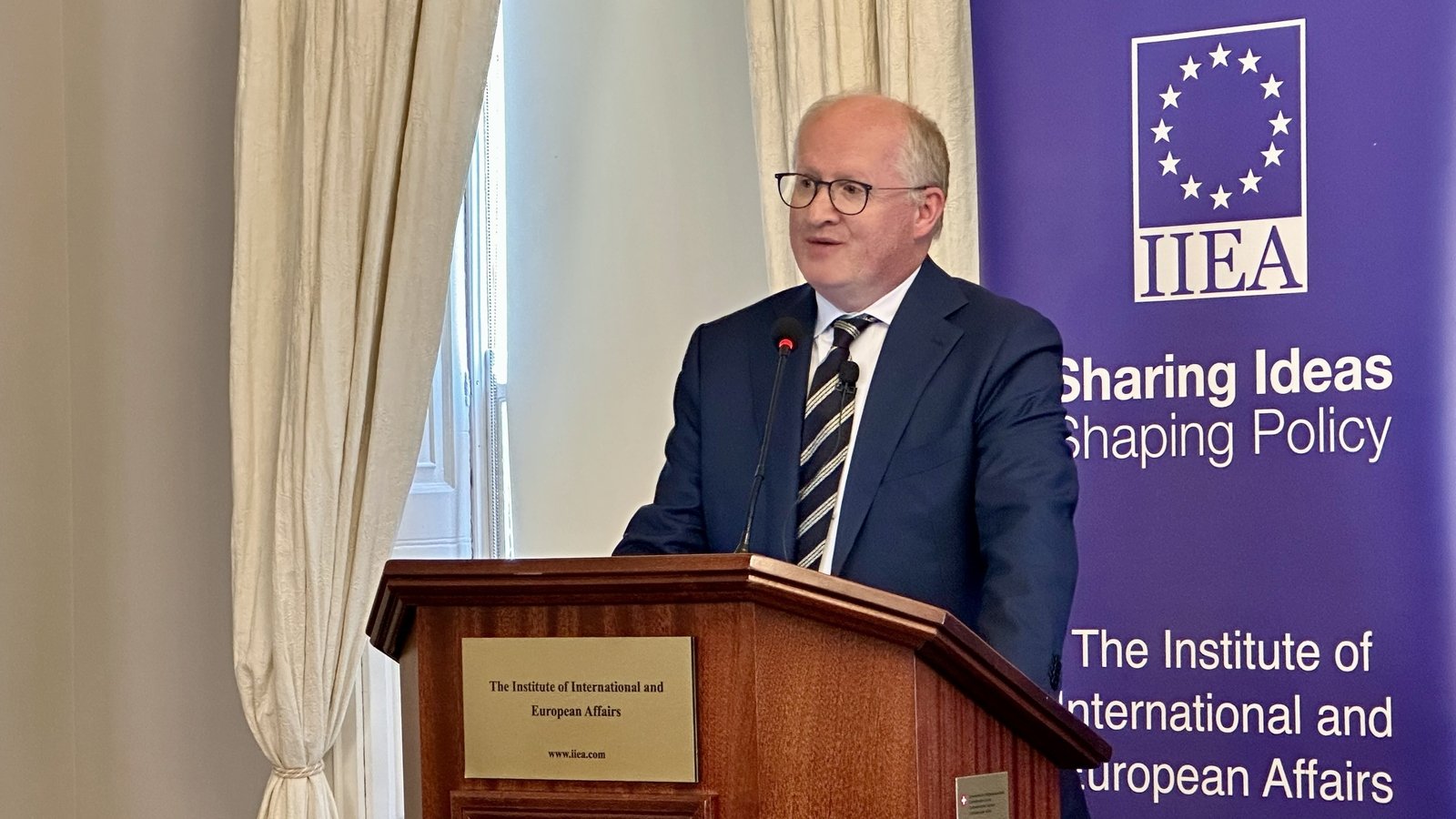Bussiness
ECB’s Lane says future rate cuts will be data dependent

The chief economist of the European Central Bank has given a strong signal that barring something unforeseen arising between now and when its Governing Council meets next week, the ECB should be in a position to begin cutting interest rates.
But Philip Lane said that after that the ECB would be taking a meeting by meeting data dependent approach on whether and when to cut rates further.
“The ideal is that we do not communicate about future interest rate decisions and for the last year, we have basically said data dependent meeting by meeting,” Professor Lane told an audience at the Institute of International and European Affairs in Dublin today.
“Now I think, at a turning point, it has been reasonable for us in the last few weeks to basically signal that barring major surprises many people on the Governing Council, including myself this morning, have indicated there may be enough in the data to say we can remove the top layer of restrictiveness,” he stated.
However, the economist also clearly stated that the job of bringing inflation in the euro zone back to the ECB’s target of 2% is not yet complete and the overall assessment of how the ECB performed over the last few years in tackling the problem could not be concluded until then.
“Until we bring inflation back to target, until this job is over, the overall evaluation does depend on this job being completed,” he said.
“It is not completed now, so the discussion about having a rate cut next week, it is not a declaration of victory,” he stated.
Philip Lane said there continues to be a lot of cost pressure in the European economy.
“We can maybe remove the top level of restriction, but we are not going to have a normal situation this year,” he added.
He said the ECB should not pre-commit beyond next week’s Governing Council meeting.
“My personal opinion which is that we should not pre-commit, we should go meeting by meeting, we should let the data help us,” he said.
He said if the ECB cuts too quickly it could face a problem if inflation ends up being more persistent.
But he added that if it waits too long, inflation could fall below target and the ECB would have to accelerate cuts later on.
He said many considerations will be relevant, with the pace of cuts likely to be slower if there are upward surprises in inflation and demand level.
But he added that equally the pace of cuts will be faster if there are downward surprises on inflation or demand.
Professor Lane said the ECB expects that over the coming months inflation will bounce around, for several reasons.
He said services inflation remains quite high and this is why the ECB still has concerns.
The initial inflationary shock triggered new inflation dynamics that will show up in services inflation, he said, and if the ECB does not use monetary policy to contain it, the fear would be that there will be legacy of a permanently high inflationary rate coming from the services sector.
Asked about the influence of the US Federal Reserve’s approach to monetary policy on the ECB’s decision making, Professor Lane said there are many channels and they flow in both directions.
“We think about it, we care about, but you would need to see very large movements in either the exchange rates or term premium for it to become super prominent in the discussion,” he said.










